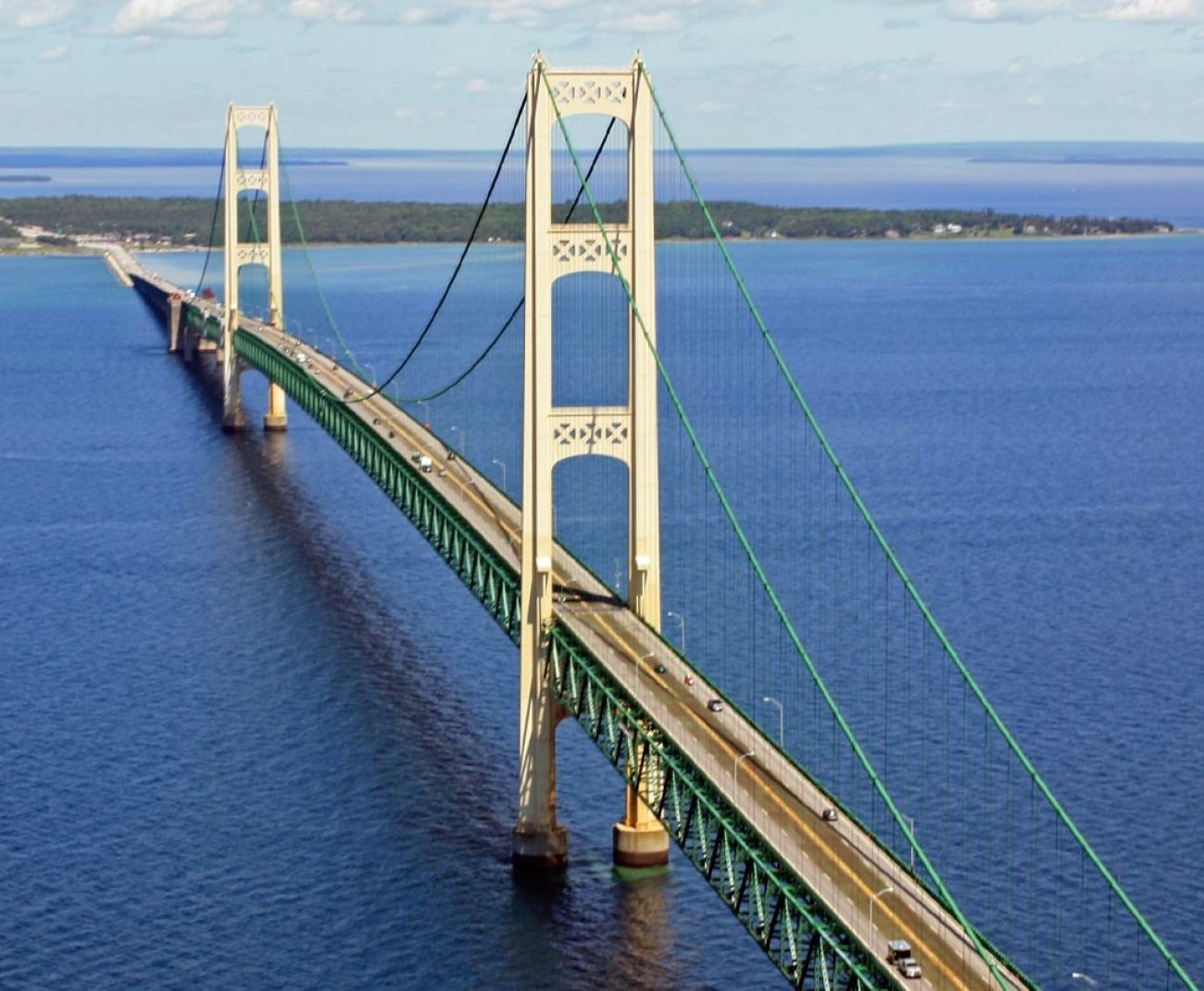Enbridge lost rods in the Straits. It didn’t tell Michigan for two months.

In mid-September, workers for Enbridge Inc. dug deep, narrow holes to gather rock and soil samples along the lakebed under the Straits of Mackinac as a part of the project to build a tunnel to protect the Line 5 oil pipeline.
One of those holes collapsed, leaving 40 feet of thin drilling rod lodged in the ground and another 45 feet of broken rod on the lake bottom, 245 feet below the water’s surface, according to a letter the state sent to Enbridge Tuesday notifying them of the violation. They waited until the sampling work was done two months later before reporting it to the state.
Now it’s too late in the year for the company to safely retrieve the debris, which a spokesman says the company will collect in spring when the weather is safer for such a deep dive.
Ryan Duffy, spokesman for Enbridge, told Bridge the 3-inch-wide rods don’t pose a safety or environmental risk in the meantime. The two-month reporting delay was necessary, he said, so the company could do a thorough risk assessment at such great depths.
“We needed to take a good look at it and what the best course of action would be,” Duffy said.
The state Department of Environment, Great Lakes and Energy (EGLE) sent a letter to the company on Tuesday noting the debris is a violation of Enbridge’s permit and state law. The state said the company must remove the rods as soon as possible, but at least before its permit expires in January 2024.
A spokesman for the department said the company won't be required to pay a fee for the violation, but said via email that EGLE “let them know of our concern that they waited so long to tell us about the incident.”
Environmental groups raised concerns Thursday that the hole collapse — while likely not harmful to the environment itself — may be indicative of future problems in the controversial pipeline tunnel project.
“Enbridge committing yet another violation, and their delay in reporting the incident, should be the final wake-up call to decision makers that we cannot continue to trust Enbridge with the health of the Great Lakes and our drinking water,” Beth Wallace, Great Lakes partnership manager and pipeline safety specialist for the National Wildlife Federation, said in a statement.
“This incident and Enbridge’s inability to immediately retrieve a 40-foot boring rod off the bottomlands, due to winter weather conditions, is alarming. What happens if the existing 66-year-old twin pipelines on the lake bed rupture?”
Duffy of Enbridge said the company is committed to the project and that “there’s no comparison” between the boring holes and the concrete-walled tunnel 100 feet below the lakebed that will protect Line 5.
“We’re working with the best geologists and tunnel engineers on the project and their expertise is going to guide what we do,” he said. “Early indications from the geotech work, the data we’ve looked at so far, all shows that the conditions under the straits are favorable to build a tunnel.”
Enbridge reached an agreement with former Gov. Rick Snyder toward the end of his administration in 2018 to build the tunnel, which is intended to protect Line 5 from damage that could pose a risk to the Great Lakes. The company will pay for the $500-million project and has promised to pay nearly $1.9 billion in damages if the pipeline is ruptured, though Attorney General Dana Nessel has issued a report detailing concerns that there’s a legal loophole allowing it to avoid payment.
Nessel filed a lawsuit in June to shut down the pipeline and lost a separate Court of Claims challenge to the tunnel project in October, though she has promised to appeal. The company sued Michigan earlier this year after Gov. Gretchen Whitmer stopped the project in March.
Whitmer, Nessel and many other Democrats have opposed Line 5, the 66-year-old pipeline that runs from Wisconsin to Canada, citing concerns that it poses a risk of breaking and causing major damage to the Great Lakes. Republicans have largely supported it, arguing it’s an essential source of fuel for the state, especially the Upper Peninsula.
Enbridge said it plans to begin construction on the tunnel in 2021 and complete it in 2024.
Michigan Environment Watch
Michigan Environment Watch examines how public policy, industry, and other factors interact with the state’s trove of natural resources.
- See full coverage
- Subscribe
- Share tips and questions with Bridge environment reporter Kelly House
Michigan Environment Watch is made possible by generous financial support from:
Our generous Environment Watch underwriters encourage Bridge Michigan readers to also support civic journalism by becoming Bridge members. Please consider joining today.
See what new members are saying about why they donated to Bridge Michigan:
- “In order for this information to be accurate and unbiased it must be underwritten by its readers, not by special interests.” - Larry S.
- “Not many other media sources report on the topics Bridge does.” - Susan B.
- “Your journalism is outstanding and rare these days.” - Mark S.
If you want to ensure the future of nonpartisan, nonprofit Michigan journalism, please become a member today. You, too, will be asked why you donated and maybe we'll feature your quote next time!






